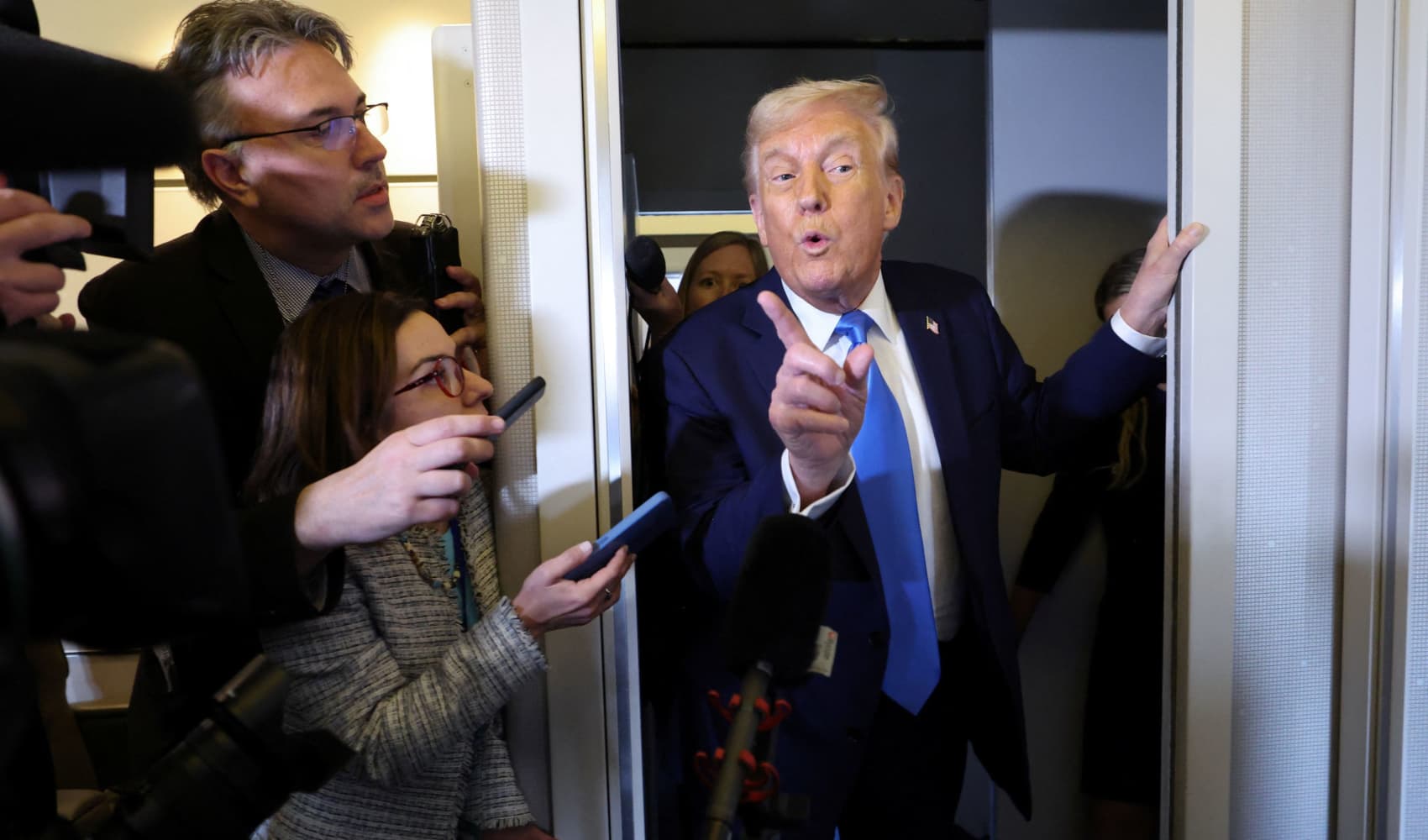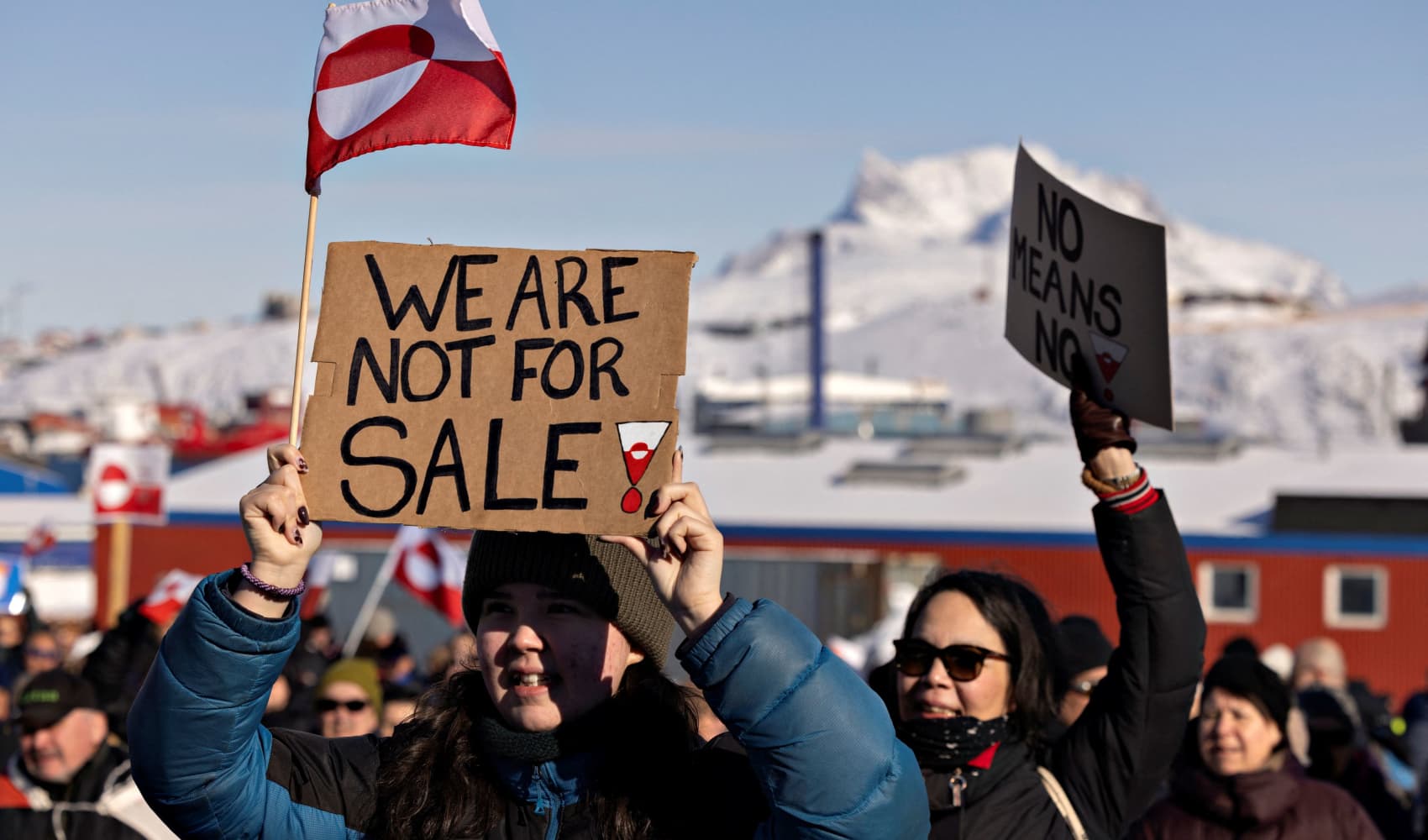
Mercedes-Benz cars wait to be shipped at the harbor in Bremerhaven, nothern Germany, on June 1, 2018.
This was CNBC's live blog covering European markets.
European stocks closed lower Thursday as global markets reacted to new automotive tariffs announced by U.S. President Donald Trump.
The regional Stoxx 600 index closed 0.44% lower as all major bourses declined. The Stoxx Europe autos index was down nearly 1% as most firms pared earlier losses, with Jeep maker Stellantis shedding 4.2%, Mercedes-Benz down 2.7% and Germany's BMW down 2.55%.
Trump said on Wednesday that he will impose a 25% tariff on "all cars that are not made in the United States" with the levies due to take effect on April 2. Trump White House aide Will Scharf said the new tariffs apply to "foreign-made cars and light trucks."
The White House leader later took to his Truth Social platform to threaten "far larger" tariffs on the EU and Canada should they cooperate to "do economic harm to the USA."
British retail giant Next was the biggest winner on the Stoxx 600, adding 10.5%, after the company reported annual profit surpassing £1 billion ($1.3 billion) for the first time. Europe's retail sector was up 2%.
U.S. stocks gyrated as investors weighed the latest tariff developments. Asia-Pacific markets were mixed Thursday, but shares of Asia's automakers declined overnight on the news.
Money Report
The U.K.'s long-term borrowing costs meanwhile ticked higher, with the yield on 10-year government bonds rising by 5 basis points, touching its highest level since January. The 2-year yield reversed course late in the day to trade just below the flatline.
Gilt yields had fallen on Wednesday as the government issued a fiscal update announcing the mix of spending cuts and increases largely expected by the market, and as the U.K.'s Debt Management Office announced a lower-than-expected level of annual bond issuance. The DMO trimmed the proportion of long-dated gilts in the portfolio in response to waning demand.
Get a weekly recap of the latest San Francisco Bay Area housing news. Sign up for NBC Bay Area’s Housing Deconstructed newsletter.
"You have a new [U.K.] government that's come in and tried to make changes that could correct the public finances, but growth potentially suffers on the back of that, inflation could reinflate or remain sticky based on changes to [social security payment] National Insurance, already high borrowing costs and cost of servicing debt, and the market just doesn't like it," Ken Egan, director of European sovereign credit at Kroll Bond Rating Agency, told CNBC.
"When there is a change in market sentiment you see those big moves in gilt yields. There are a lot of international investors who can switch into other asset classes."
— CNBC's Brian Evans contributed to this market report.
Europe stocks close lower
European stock markets closed lower on Thursday, with the Stoxx 600 index continuing largely negative momentum to lose 0.44%.
Germany's DAX dropped by 0.7%, France's CAC 40 by 0.5% and the U.K.'s FTSE 100 by 0.27%.
— Jenni Reid
British pound, euro gain against U.S. dollar
The U.S. dollar tumbled on Wednesday, with the dollar index down 0.26% at 3:26 p.m. London time as investors assess the potential economic impact from U.S. President Donald Trump's swingeing new tariffs.
Sterling recovered its losses from the previous session when markets increased bets on a May interest rate cut from the Bank of England, adding 0.5% against the greenback to trade at $1.295. The euro was 0.42% higher against the dollar at $1.08.
— Jenni Reid
Trump’s autos tariffs are a ‘nightmare’ scenario: Bernstein
Stephen Reitman, head of European Automotive Research at Bernstein, says that U.S. President Donald Trump's autos tariffs are a "nightmare" scenario for carmakers.
UK borrowing costs rise
The yield on U.K. 10-year government bonds – known as gilts – rose on Thursday, adding 6 basis points by 12:33 p.m. in London.
This puts the yield at its highest level since January, when British government borrowing costs spiked to multi-decade highs.
Thursday's move comes after the British government doubled down on its plans to slash welfare costs by billions of pounds, and a day after an official economic growth forecast for the U.K. was halved.
— Chloe Taylor
Retail stocks crowd the top of Europe's Stoxx 600
Retail stocks were leading on the Stoxx 600 Thursday morning as British retailers Next and Ocado reported strong earnings, marking a shift in consumer sentiment.
British retail giant Next was the biggest winner on the Stoxx 600, adding 6% in gains, after reporting an annual profit that surpassed £1 billion ($1.3 billion) for the first time. Also leading the index were German online retailer Zalando which gained 4.3%, and Marks & Spencer which was up 3.2%.
Food retailers were also in the green with Ocado adding 4.1%, following better-than-expected earnings on Wednesday and Swedish retailer Axfood adding 2%.
Chris Beauchamp, chief market analyst at IG Group, pinned the strong retail stock performance on a "healthier consumer," in an interview with CNBC, noting that Next is a "good little bellweather" for the performance of the retail sector.
"There's sort of the view that retail is turning a corner and maybe some of the negativity we've heard around Europe is beginning to dissipate, and that's certainly helping matters."
Beauchamp added that tariffs may change things in the coming weeks.
"At the moment things are quite negative, and with the tariff backdrop, we could be in a different place next week. Of course, sentiment remains fragile, and it's issues with the European markets generally; they've done so well recently that you do wonder if they're going to be quite heavily affected if U.S. markets take another turn south," he said.
— Sawdah Bhaimiya
British retailer Next surpasses $1 billion profit for the first time
British retail giant Next made over a billion pounds in annual profit for the first time and raised its sales and profit guidance for 2025, it reported on Thursday.
Next, a staple in British retail brands, reported a pretax profit of £1,011 billion ($1.3 billion) in 2024, up 10.1% from the previous year and surpassing the billion pound milestone. Its total group sales hit £6.3 billion, rising 8.2%.
The company attributed its strong performance to being a "comprehensive service provider for other retailers," noting that 42% of its online sales don't come from Next branded products.
It upgraded its sales guidance for the first half of 2025 to 6.5%, up from 3.5%, resulting in guidance for full-year price sales growth to increase to 5%.
However, Next is not upgrading its sales guidance of 3.5% for the second half of the year, citing tax rises in the U.K. from April, which will "weaken the UK employment market and negatively impact consumer confidence as the year progresses."
— Sawdah Bhaimiya
Auto stocks sell off

Europe's Stoxx Automobiles and Parts index was 2.8% lower by 8:35 a.m. London time on Thursday, after U.S. President Donald Trump said new 25% tariffs on all cars made outside of the U.S. would come into force from April 2.
The sector had earlier traded even lower, shedding more than 3% shortly after the opening bell.
By 8:35 a.m., shares of Jeep-maker Stellantis and Mercedes-Benz were both down 5.6%, while Porsche had shed 5.4%, BMW was 4.3% lower and Volkswagen stock had slid 3.5%.
Last year, the U.S. was the leading buyer of EU-made goods in the world, with machinery and vehicles accounting for most of the bloc's exports to America. In 2024, the EU had a vehicles and machinery trade surplus with the U.S. worth 102 billion euros ($109.8 billion).
In a statement on Wednesday, European Commission President Ursula von der Leyen said the EU will seek solutions through talks while safeguarding its economic interests.
"As a major trading power and a strong community of 27 Member States, we will jointly protect our workers, businesses and consumers across our European Union," she said.
— Chloe Taylor
H&M posts weaker-than-expected first-quarter sales in slow start to the year
H&M on Thursday posted weaker than expected first-quarter sales in a slow start to the year for the world's second-largest clothing retailer.
Sales at the Swedish fashion giant rose 2% in local currencies to 55.33 billion Swedish krona ($5.5 billion) in the three-month period, slightly below the 55.86 billion forecast by LSEG analysts.
Operating profit totaled 1.2 billion in the first quarter, versus 1.9 billion Swedish krona expected.
— Karen Gilchrist
Trump threatens ‘far larger’ tariffs if EU and Canada unite to do ‘economic harm’ to the U.S.
U.S. President Donald Trump threatened to impose "far larger" tariffs on the European Union (EU) and Canada if they work together to combat trade tariffs.
"If the European Union works with Canada in order to do economic harm to the USA, large scale Tariffs, far larger than currently planned, will be placed on them both in order to protect the best friend that each of those two countries has ever had!," Trump said in a Truth Social update on Thursday.
On Wednesday, the White House leader had announced that he will set a 25% tariff on "all cars that are not made in the United States" with the levies due to take effect on April 2.
Trump White House aide Will Scharf said the new duties apply to "foreign-made cars and light trucks" and come in addition to tariffs that are already in place. He estimated that the measures will result in "over $100 billion of new annual revenue" to the U.S.
— Holly Ellyatt
The direction of average tariff rates is up, Barclays says
Whether President Trump will indeed soften his approach to tariffs as he has recently suggested is uncertain, but one thing that is clear is that average tariff rates are rising, according to Barclays.
"We think the direction of travel is clear: average tariff rates are increasing, likely to levels not seen since before World War II," the firm's Michael McLean wrote Wednesday.
"At the end of 2024, the US weighted average tariff rate was 2.5%. After the tariffs that Trump has implemented so far, the average tariff rate has increased more than 3 times to over 8%," he continued. "We assume once Trump is finished, it could be as high as 15%."
— Sarah Min
UBS highlights 3 reasons to favor U.S. AI companies over China's
In a recent note, UBS shared three compelling reasons why investors should favor U.S. artificial intelligence firms over those of China's.
"A lingering sense of nervousness remains among AI investors, primarily centered on the concern that Chinese AI developers and their low-cost models threaten to usurp US competitors with higher sunk investment costs," wrote Mark Haefele, chief investment officer of UBS Global Wealth Management. "While both the United States and China have made significant strides in the AI sector, CIO believes there are compelling reasons to favor US AI companies over their Chinese counterparts, especially in the near term."
Haefele said outsized capital expenditures from U.S. firms should drive greater competitive advantage.
"The higher capex intensity in the US, defined as capex spending divided by revenues, stands at 20% in 2025 compared to China's 11.7%. This disparity highlights the US's commitment to maintaining a technological edge, even though it may lead to higher depreciation-related expenses in the short term," he wrote.
Meanwhile, higher research and development spending from U.S. AI firms means they are better positioned to discover "the next big thing." Finally, Haefele underscored that U.S. firms have a "clear advantage" in higher monetization potential, suggesting that they have a better chance of generating revenues and profits.
— Lisa Kailai Han
European markets: Here are the opening calls
European markets are expected to open sharply lower Thursday as global markets react to new automotive tariffs announced by U.S. President Donald Trump.
The U.K.'s FTSE 100 index is expected to open 25 points lower at 8,665, Germany's DAX down 159 points at 22,685, France's CAC 35 points lower at 7,991 and Italy's FTSE MIB 188 points lower at 38,152, according to data from IG.
Earnings are set to come from H&M and Next, while data releases will include final U.S. fourth-quarter gross domestic product data and Spanish business confidence figures.
— Holly Ellyatt






